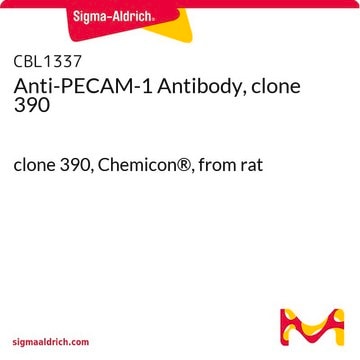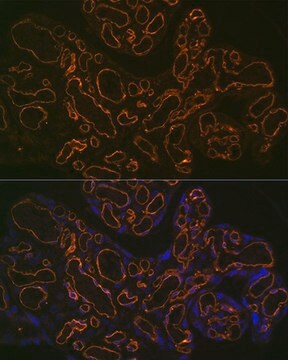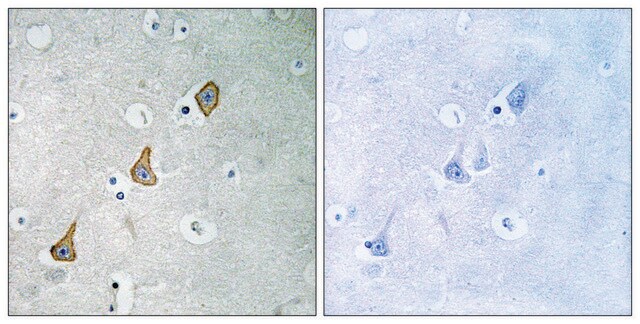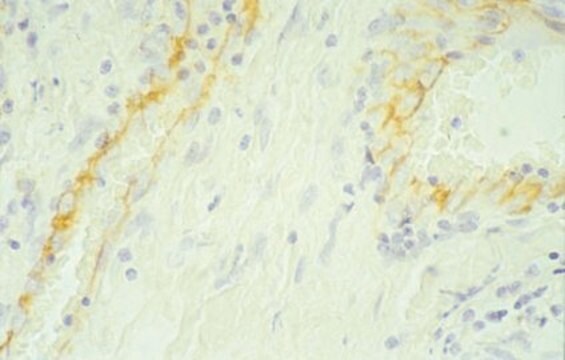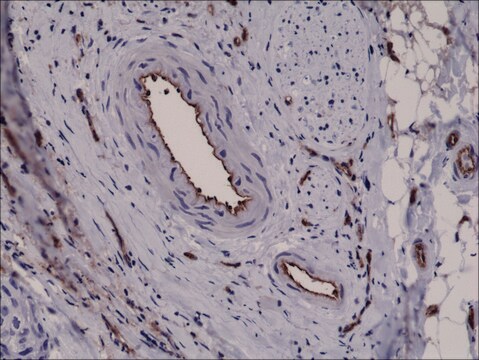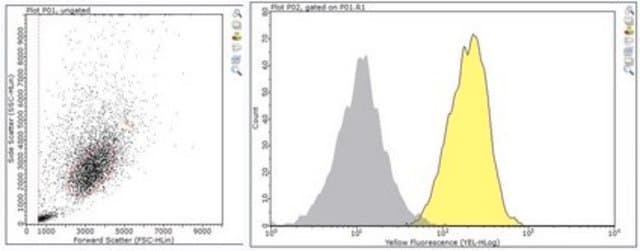CBL1337F
Anti-PECAM-1 Antibody, clone 390, FITC conjugated
clone 390, Chemicon®, from rat
Synonyme(s) :
CD31
About This Item
Produits recommandés
Source biologique
rat
Niveau de qualité
Conjugué
FITC conjugate
Forme d'anticorps
purified immunoglobulin
Type de produit anticorps
primary antibodies
Clone
390, monoclonal
Espèces réactives
mouse
Fabricant/nom de marque
Chemicon®
Technique(s)
flow cytometry: suitable
immunohistochemistry: suitable
Isotype
IgG2aκ
Numéro d'accès NCBI
Numéro d'accès UniProt
Conditions d'expédition
wet ice
Modification post-traductionnelle de la cible
unmodified
Informations sur le gène
human ... PECAM1(5175)
Catégories apparentées
Description générale
Spécificité
Immunogène
Application
Immunohistochemistry: acteone fixed frozen tissue sections.
Optimal working dilutions must be determined by the end user.
Cell Structure
Adhesion (CAMs)
Forme physique
Stockage et stabilité
Autres remarques
Informations légales
Clause de non-responsabilité
Not finding the right product?
Try our Outil de sélection de produits.
Code de la classe de stockage
12 - Non Combustible Liquids
Classe de danger pour l'eau (WGK)
WGK 2
Point d'éclair (°F)
Not applicable
Point d'éclair (°C)
Not applicable
Certificats d'analyse (COA)
Recherchez un Certificats d'analyse (COA) en saisissant le numéro de lot du produit. Les numéros de lot figurent sur l'étiquette du produit après les mots "Lot" ou "Batch".
Déjà en possession de ce produit ?
Retrouvez la documentation relative aux produits que vous avez récemment achetés dans la Bibliothèque de documents.
Notre équipe de scientifiques dispose d'une expérience dans tous les secteurs de la recherche, notamment en sciences de la vie, science des matériaux, synthèse chimique, chromatographie, analyse et dans de nombreux autres domaines..
Contacter notre Service technique